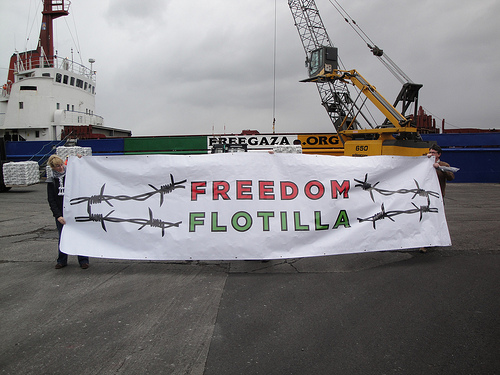









The Freedom Flotilla: Navigating the Waters of Activism and Human Rights
The Freedom Flotilla represents a bold and controversial movement aimed at challenging maritime blockades and advocating for human rights, particularly in the context of the Palestinian territories. This article delves into the flotilla's origins, its key missions, and its implications for international relations and maritime law.
Origins of the Freedom Flotilla
-
Birth of the Movement: The Freedom Flotilla movement began in 2008, primarily in response to the Israeli blockade of Gaza. Activists sought to highlight the humanitarian crisis in the region and challenge the restrictions imposed on the movement of goods and people.
-
Key Players: The flotilla involves various NGOs, activist groups, and international supporters, including prominent figures from humanitarian, political, and social circles. Organizations like the Free Gaza Movement and the International Solidarity Movement have played pivotal roles in organizing these maritime missions.
-
First Flotilla: The inaugural flotilla set sail in May 2010, featuring several ships carrying humanitarian aid. This mission drew international attention, culminating in the tragic Mavi Marmara incident, where Israeli forces conducted a raid resulting in the deaths of nine activists.
Key Missions and Their Impact
-
Humanitarian Aid: Each flotilla aims to deliver essential supplies—such as food, medical equipment, and educational materials—directly to the people of Gaza, circumventing the blockade. The deliveries symbolize a commitment to human rights and humanitarian assistance.
-
Activism and Awareness: Beyond delivering aid, the flotilla serves as a platform for raising awareness about the plight of Palestinians. Activists on board engage in discussions, social media campaigns, and media outreach to amplify their message globally.
-
Legal and Political Ramifications: The actions of the flotilla have significant legal implications. They raise questions about international maritime law, the rights of ships to navigate international waters, and the legality of blockades. Activists argue that such blockades violate international humanitarian law.
Controversies and Challenges
-
International Response: The flotilla has faced condemnation and support from various governments and organizations. While some nations view it as a legitimate form of protest, others label it as provocative and potentially endangering regional stability.
-
Security Concerns: Israeli authorities have consistently warned that they will intercept any vessels attempting to breach the blockade, citing security concerns. This has raised fears among activists about the potential for violence and escalation during these missions.
-
Public Perception: The flotilla is polarizing; supporters laud it as a courageous stand for human rights, while critics accuse it of undermining peace efforts and promoting confrontation. This dichotomy reflects broader divisions in public opinion regarding the Israeli-Palestinian conflict.
Recent Developments
-
Evolving Strategies: In recent years, the Freedom Flotilla has adapted its strategies, focusing not only on direct aid delivery but also on fostering dialogue and cooperation among diverse groups. Initiatives aimed at building international coalitions and partnerships have emerged, emphasizing shared human rights goals.
-
Technological Integration: The use of technology has transformed the way flotilla missions are organized and publicized. Social media platforms and live streaming have become vital tools for documenting efforts and mobilizing support, allowing activists to reach wider audiences.
-
Legal Battles: Ongoing legal disputes over the rights of the flotilla have prompted activists to challenge international maritime laws and the legitimacy of blockades. These legal battles are crucial in shaping future missions and will likely influence international policy discussions.
The Future of the Freedom Flotilla
-
Sustainability of the Movement: As the Freedom Flotilla continues to navigate the complex waters of activism, its sustainability hinges on maintaining public interest and support. Ensuring continuous engagement with the global community is essential for the movement's longevity.
-
Potential for Dialogue: While the flotilla represents a form of protest, there is potential for it to foster dialogue between conflicting parties. Efforts to include voices from both sides of the Israeli-Palestinian conflict could pave the way for more constructive conversations and solutions.
-
Impact on International Relations: The flotilla's actions will continue to influence international relations, particularly regarding humanitarian interventions and maritime law. As global dynamics shift, the flotilla may either adapt or face challenges in maintaining its relevance.
Conclusion
The Freedom Flotilla encapsulates a unique intersection of activism, humanitarianism, and international law. As it continues to sail the turbulent waters of geopolitical tensions, its significance as a symbol of resistance and hope remains undiminished. The ongoing story of the flotilla serves as a reminder of the power of collective action in advocating for human rights and challenging oppressive regimes.
